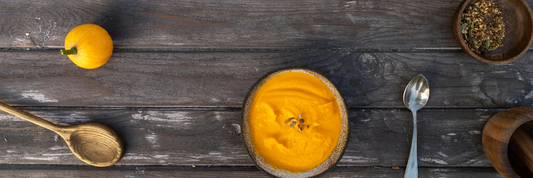Ever wondered why you can still feel alert hours after your morning coffee or why that late-day latte keeps you awake at night?
Caffeine affects everyone differently depending on age, metabolism, and tolerance. In this guide, we’ll break down how long caffeine lasts in your system, what influences it, and how to manage its effects naturally.

How Long Does Caffeine Stay in Your System?
Caffeine affects everyone differently, depending on factors such as age, metabolism, health, and caffeine sensitivity. Understanding how long it stays in your system can help you make smarter choices about when to enjoy your daily brew whether that’s your morning coffee, afternoon matcha, or your café’s signature cold brew served in sustainable drinkware.
Absorption Time: When Caffeine Kicks In
Caffeine begins working surprisingly fast. Within 15 to 45 minutes of consumption, its stimulating effects become noticeable that familiar boost in alertness and focus. During this period, caffeine reaches peak levels in your bloodstream, giving you that morning energy lift many rely on.
Tip for cafés: Offering clearly labelled caffeine levels for your drinks from espresso shots to matcha lattes can help customers manage their energy intake while enhancing trust in your brand.
Half-Life of Caffeine
The half-life of caffeine the time it takes your body to eliminate half of what you’ve consumed usually ranges from 3 to 5 hours.
For example, if you drink a cup containing 200 mg of caffeine, about 100 mg may still be in your system 3–5 hours later.
Several factors can extend or shorten this half-life:
- Pregnancy or medications (like antibiotics or birth control) can slow metabolism.
- Smokers or those with fast metabolism may process caffeine faster.
- Older adults often metabolize caffeine more slowly.
To compare how caffeine behaves in different types of drinks, see Caffeine Content in Different Types of Coffee, it breaks down how espresso, drip coffee, and cold brew differ in strength and duration.
Total Duration
On average, caffeine remains active for 5 to 10 hours, though sensitivity plays a big role.
- Sensitive individuals may feel its effects for much longer.
- Regular coffee drinkers might experience shorter, milder stimulation due to tolerance.
If you often wonder why your favorite latte keeps you alert late into the night, you’ll find useful insights in Does Matcha Have Caffeine? it compares matcha’s slower-release energy to coffee’s sharper peak.
Factors Affecting How Long Caffeine Lasts

Several variables influence how long caffeine lasts in your system:
- Metabolism: Fast metabolisms clear caffeine more quickly, while slower metabolisms extend its effects.
- Age: Older adults tend to metabolize caffeine more slowly.
- Health conditions: Liver health, pregnancy, and medications can impact how efficiently your body processes caffeine.
- Tolerance: Regular coffee or tea drinkers may experience milder, shorter-lasting effects due to built-up tolerance.
If you manage a café or serve beverages, understanding caffeine’s effects also helps tailor your menu. Our article Top 5 Coffee Packaging Trends in Canada for 2025 covers how modern cafés are balancing functionality and customer well-being through smart, sustainable packaging choices.
How to Reduce Caffeine’s Effects
We’ve all been there, you grab one extra cup of coffee or an energy drink and suddenly feel jittery, anxious, or restless. While caffeine sensitivity varies from person to person, the good news is that there are natural ways to help your body process caffeine more smoothly and restore calm.
Here’s how to rebalance after too much caffeine:
Hydrate Generously
Water is your body’s best detox tool. Caffeine is a mild diuretic, which means it can increase urine output and lead to dehydration if you’re not careful.
- Drink 2–3 cups of water for every cup of coffee or energy drink consumed.
- Staying hydrated supports liver and kidney function, helping your system metabolize and flush out caffeine faster.
- For café lovers on the go, pairing your coffee with a glass of water is a smart habit and a small act of self-care.
Move Your Body
Light physical activity can help your body burn through caffeine’s stimulating effects more efficiently.
- Try a short walk, stretching, or gentle yoga to help your body use up excess adrenaline released by caffeine.
- Movement improves blood circulation and supports your metabolism, easing that “wired” feeling without increasing fatigue later.
Even a quick 10-minute stroll outside can make a noticeable difference in how calm and grounded you feel.
Eat a Balanced Snack
If caffeine is making you feel shaky or light-headed, food can help buffer its effects.
- Choose foods rich in fiber and protein (like oatmeal, nuts, or Greek yogurt) to stabilize blood sugar levels.
- Pairing caffeine with complex carbs slows absorption, giving you a more steady energy curve instead of a sudden spike and crash.
Avoid sugary snacks, they may worsen the jitters or lead to an energy crash once caffeine wears off.
Breathe & Reset Your Nervous System
Caffeine stimulates your sympathetic nervous system (your “fight or flight” mode). Deep, slow breathing activates the parasympathetic system, which helps your body relax.
- Try inhaling for 4 seconds, holding for 4, exhaling for 6.
- Gentle mindfulness or grounding exercises can reduce tension and heart rate within minutes.
This is especially helpful if caffeine triggers anxiety or an elevated heart rate.
Rest and Give It Time
Ultimately, time is the only true antidote to caffeine. Your liver gradually metabolizes caffeine, and your body will naturally return to balance as levels decline.
- Try resting in a quiet, low-stimulus environment if you’re feeling overstimulated.
- Avoid additional caffeine (even chocolate or soda) while waiting it out.
- Drinking caffeine-free herbal teas like chamomile or rooibos can soothe your nerves and encourage relaxation.
Plan Smarter Next Time
If you find yourself regularly feeling jittery or restless after coffee, use your experience as feedback.
- Experiment with smaller doses try half-caf or lighter-roast options.
- Track what time you drink caffeine and how you feel throughout the day.
- Aim to finish your last cup by 2 p.m. so caffeine doesn’t interfere with sleep.
Building a mindful coffee routine helps you enjoy all the benefits of caffeine without unwanted side effects.

FAQs About Caffeine Duration
Why does caffeine affect some people more than others?
Genetics, age, and lifestyle all play a role in how efficiently your body processes caffeine.
Can I flush caffeine out faster?
Hydration and light movement help, but ultimately your body needs time to metabolize it.
Does drinking water cancel out caffeine?
No, but it helps reduce side effects like dehydration or jitters.
Is it safe to drink coffee in the evening?
If you’re sensitive to caffeine, avoid it after 2 p.m. to protect your sleep quality.
How can cafés serve coffee sustainably?
By choosing compostable cups, sleeves, and straws from KimEcopak.ca
for eco-friendly service.
Conclusion
Caffeine typically lasts 5 to 10 hours in the body, though everyone’s experience is unique. Understanding how it works and how to balance your intake helps you enjoy its benefits without unwanted side effects.
Drink smart, stay hydrated, and choose eco-friendly coffee habits that keep both your energy and your planet in balance.
And if you’re a café or beverage business, offering responsibly served drinks in eco-friendly cups from KimEcopak not only supports sustainability but also enhances your customers’ well-being with every sip.







